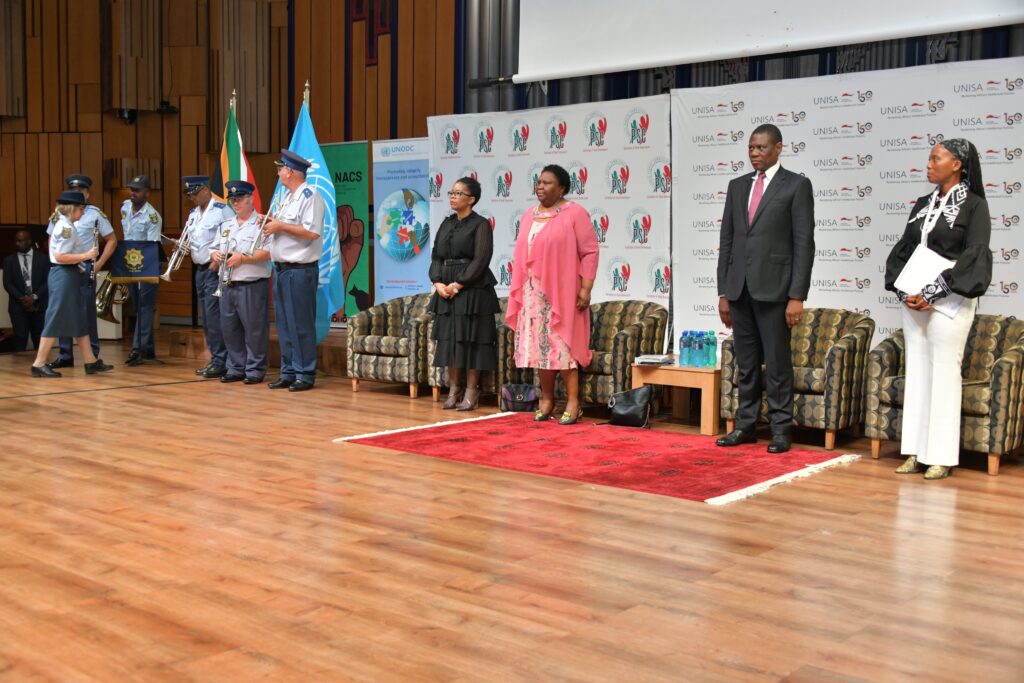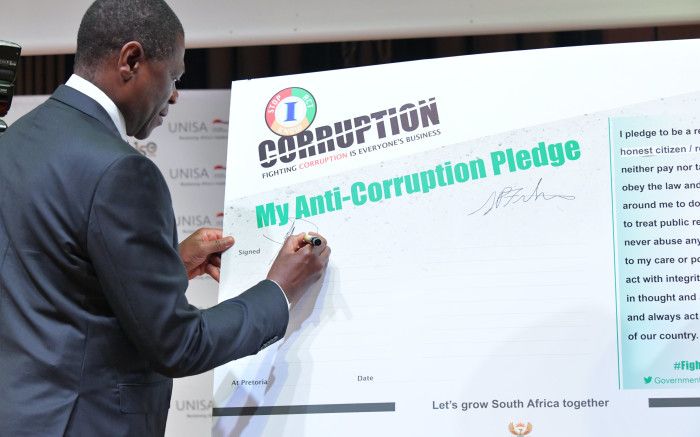Johnathan Paoli
Deputy President Paul Mashatile has called for harsher forms of punishment for those involved in corrupt and criminal activities.
Mashatile delivered the keynote address at the South African commemoration of the 2023 International Anti-Corruption Day, which was held at the UNISA main campus in Pretoria on Friday.
Unisa in partnership with the Public Service Commission and the United Nations hosted the joint Anti-Corruption Day Dialogue in Pretoria, which sought to highlight the crucial link between anti-corruption and peace, security and development, and marked the 20th anniversary of the convention.
The Deputy President said that the government would leave no stone unturned in its attempt to renew the party and its fight against corruption.
“As a government, we are dedicated to eliminating corruption and dealing harshly with those who partake in it,” said Mashatile.

In 2003, the United Nations passed the United Nations Convention Against Corruption (UNCAC) – the first step in combating corruption. It was a treaty signed by the UN member states who came together to join hands in fighting against corruption and enforcing law and order. The treaty was signed on December 9 and came into effect on December 14.
At its core is the notion that tackling this crime is the right and responsibility of everyone, and that only through cooperation and the involvement of each and every person and institution can we overcome the negative impact of this crime.
States, government officials, civil servants, law enforcement officers, media representatives, the private sector, civil society, academia, the public and youth alike, all have a role to play in uniting the world against corruption.
The Chairperson of the Public Service Commission Somadoda Fikeni has described corruption as the new apartheid, and that similar to anti-apartheid activists, whistle-blowers have fallen victim to being murdered and exiled for speaking truth to power.
“This is a generational mission of our time to say, corruption is the new apartheid that we should all combine forces against,” Fikeni said.
Mashatile said that government officials’ priority was to the people and not to satisfy their stomachs and that the state was rolling out recommendations contained in the State Capture Commission in order to ensure that the mistakes of the past were never repeated.

INSIDE POLITICS

